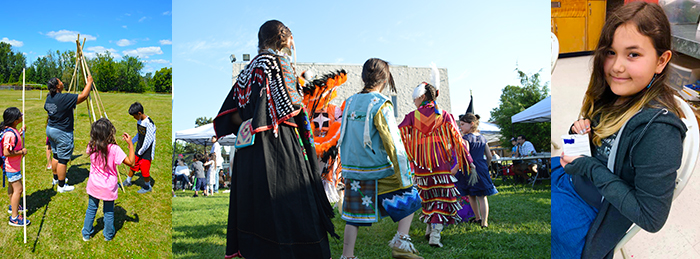Native American Youth and Family Centre (NAYA) Resources for Native American Children and Students

What Challenges do Native American Students Face?
Native American students experience significant barriers to equitable education in schools. A 2020 report found that just 28.1% of Native American students in Washington met the 4th Grade SBA Proficiency Standards in ELA, as opposed to 76% of Asian students and 65% of White students – a deplorable achievement gap that showcases the poor standards of education that Native students are subject to. The “Miseducation” project by ProPublica found that in the Seattle School District “Native American or Alaska Native students are 5.6 times as likely to be suspended as white students” and that “White students are 1.5 times as likely to be enrolled in at least one AP class as Native American or Alaska Native students.” Take a look at the project to learn more about inequities within the school district that you work within.
Native American Youth and Family Center
In 1974 community members formed The Native American Youth and Family Center (NAYA) in the Portland metropolitan area which is located on the land of the Multnomah, Kathlamet, Clackamas, Chinook, Tualatin Kalapuya, Molalla (and more, over 380 federally recognized tribes have traditionally inhabited the land). NAYA states that their vision is to build stable and economically secure communities that practice culture, spirituality and wellness. They offer a variety of programs including, “ lifelong educational opportunities, cultural identity, leadership development, elders support, homes for families, early childhood programs, and paths to financial security based on traditional tribal values. We are committed to eliminating poverty, hunger, family violence, and homelessness.” They offer a wide variety of youth programs in addition to their other outreaches. For example, they offer culture nights, gang outreach and prevention support, a tutoring centre and support for two spirit individuals. You can even learn about their Many Nations Academy, a program for Native high school students that offers unique electives that range from STEM skills to training in cultural traditions. It is important to recognize that COVID-19 has greatly impacted marginalized communities and the non-profits who serve them. As such, some programs have received less growth over the last two years, consider learning about how to support NAYA through their website.

Additional Resources
- Sealaska Heritage – They focus on educating Native students and their teachers on culture and heritage of PNW Natives.
- Northwest Indian College – The only accredited tribal college in Washington state.
- Oregon Community Foundation – Offers scholarships to Native American students
- National Indian Child Welfare Association – Works in six major areas; preventing abuse and neglect, the Indian Child Welfare Act, foster care and adoption, children’s mental health, youth engagement and juvenile justice.
- If you know a child in need of culturally sustaining resources, encourage outreach to their tribe as specific resources may be allocated and available for them.
Citations
Groeger, L., Waldman, A., & Eads, D. (2018, October 16). Miseducation. ProPublica. https://projects.propublica.org/miseducation/
NAYA | Native American Youth and Family Center. (n.d). Retrieved February 2, 2022, from https://nayapdx.org/
Washington State Board of Education . (2020). STATEWIDE INDICATORS OF EDUCATION SYSTEM HEALTH 2020 Summary Report and Recommendations. Retrieved from ERIC.
